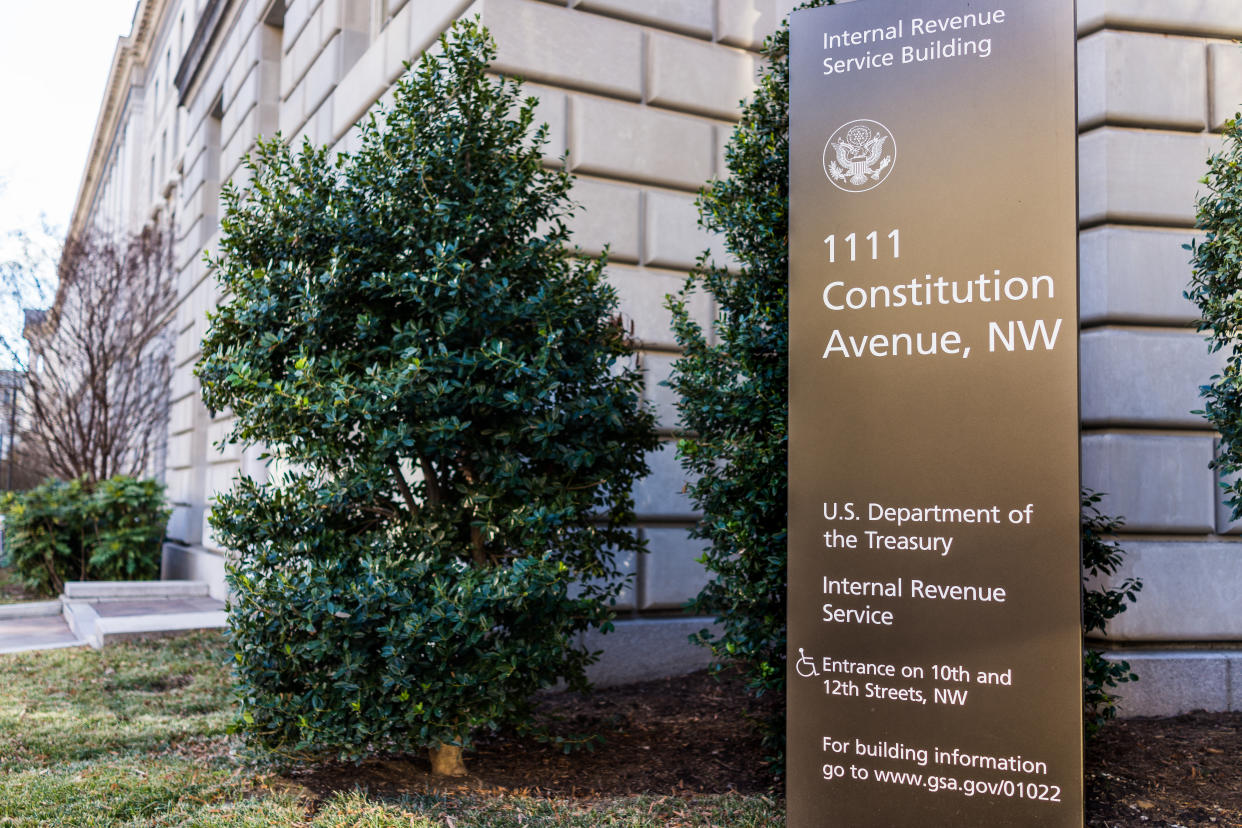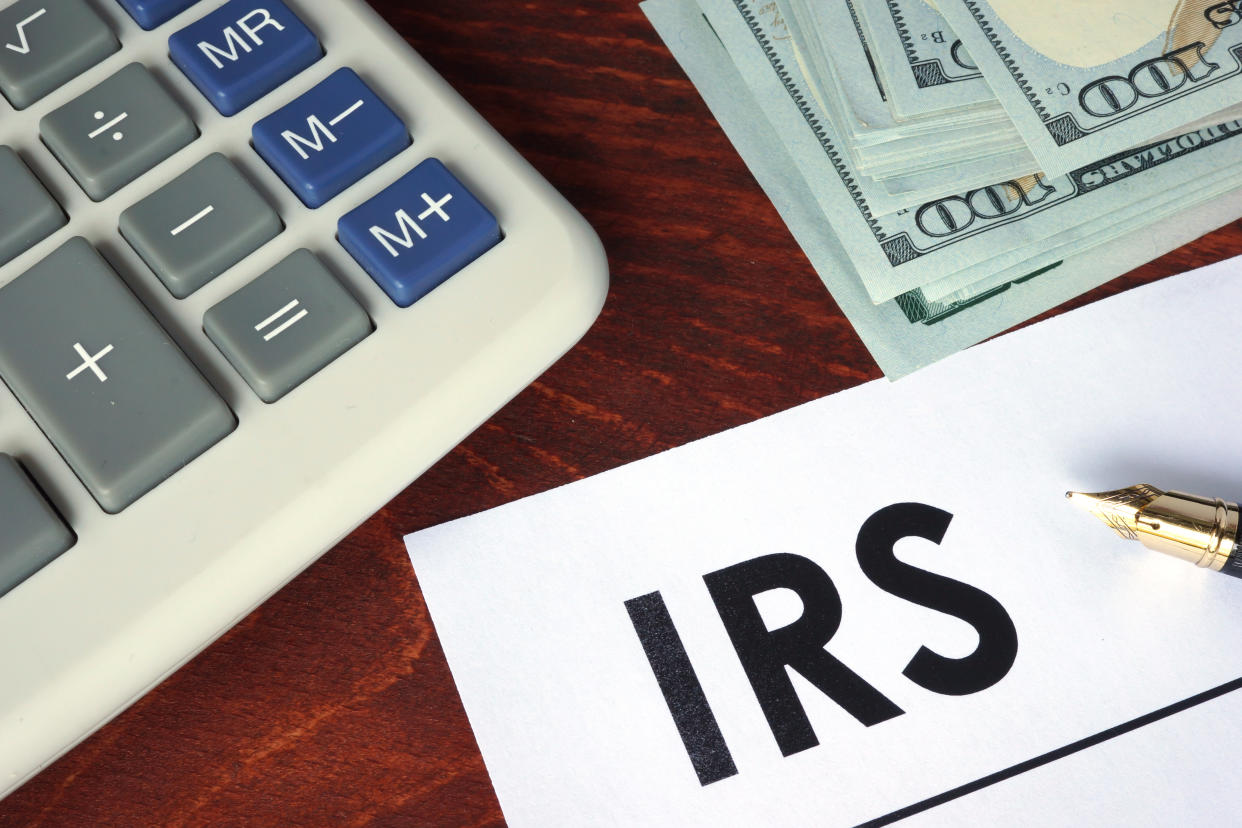Home » World News »
IRS fix for a tax refund ‘trap' is not a permanent solution, watchdog says
The Internal Revenue Service finally fixed an oversight that could have prevented some taxpayers from claiming overdue COVID-19-related tax refunds from the last few years.
The agency this week resolved a timing issue between when taxpayers can claim credits and refunds from a previous tax year and the timeframe allowed to do that outlined by the IRS so-called “lookback” clause.
While the fix allows taxpayers to claim pandemic-era benefits they may have first overlooked, the IRS solution doesn’t apply when the issue arises in other scenarios.
"I am pleased the IRS addressed this issue for TYs 2019 and 2020. However, the relief offered in this notice is limited to only the COVID-19-related postponements and doesn't offer a permanent solution for other disaster relief,” Erin M. Collins, the National Taxpayer Advocate, wrote in a blog this week. “Therefore, I have made a legislative recommendation for the last couple of years that would fix this problem permanently and prevent taxpayers from being harmed and falling into a trap for the unwary.”
The timing issue
The refund trap occurs when two IRS timelines imposed on taxpayers who are retroactively claiming refunds or credits don't align.
The first is the timing rule for claiming credits and refunds. Taxpayers can claim refunds and credits as long as they make the request within three years from the date that the return was filed or two years from the date the tax was paid, whichever is later. Any refund claimed within three years from when the return was filed is limited to the tax payments made within those three years, according to the lookback clause.
Those two timelines align under normal circumstances because returns are usually filed and paid by April 15. But those timelines diverge when the agency delays the tax-filing deadline as it did in 2020 and 2021.
Here’s an example.
In 2020, the IRS postponed the 2019 tax-filing deadline to July 15, 2020, three months after the original due date. But W-2 employees were still considered to have paid their taxes on April 15 of that year, according to tax law IRC 6513 (b)(1), a key consideration for the lookback clause.
So if a taxpayer filed taxes on the new filing deadline — July 15, 2020 — and later wanted to claim a refund or credit on July 14, 2023, which is within the three-year timeframe to claim a refund and credit, the request would be denied. That’s because, according to the lookback clause, the taxpayer didn't pay any taxes for the 2019 tax year between July 15, 2020, when they filed and July 14, 2023, when they retroactively claimed. Instead, the agency considered those taxes paid on April 15, 2020, or outside that timeframe.
The National Taxpayer Advocate had asked the IRS to fix the unintended inconsistencies permanently and protect the “taxpayer's right to pay no more than the amount of tax.”
The IRS receives around 3 million amended tax returns annually, according to a new release by the agency on February 9, 2023. Taxpayers who amend taxes could be retroactively claiming a refund or credit that was not on the original return.
"A very common situation is the taxpayer is looking at their return the next year and they realize that there was a particular tax benefit that they failed to claim," Kenneth Drexler, senior adviser to the National Taxpayer Advocate, explained to Yahoo Finance. "Maybe they failed to claim the Child Tax Credit, or the stimulus payments during COVID, or they were entitled to a Recovery Rebate Credit."
Among the amended returns for the tax year 2019, nearly 22% of taxpayers filed during the postponement period between April 16, 2020, and July 15, 2020, according to the NTA bog, potentially putting them in the refund trap if they tried to claim previous refunds or credits.
A permanent solution still needed
The timing issue is not permanently resolved, though. The ruling this week applies only to the 2020 and 2021 tax-filing seasons for 2019 and 2020 tax returns, respectively.
But the IRS could — and regularly does — delay tax-filing deadlines for other disaster relief, such as hurricanes and floods. This inevitably means some taxpayers could face the refund trap again.
For instance, the agency recently announced a tax-filing postponement for residents affected by extreme winter storms, flooding, and weather in Alabama, California, and Georgia. But the IRS has yet to announce a fix for these residents.
"Almost every year, there's a hurricane, there's a flood, there's something that causes the IRS to postpone the filing deadline for a limited portion of the population," Drexler said. "And it just seems now that we're all aware of the issue and have focused on it, that we might as well just fix it once and for all so we don't have to come back to it again."
Rebecca is a reporter for Yahoo Finance.
Read the latest financial and business news from Yahoo Finance
Download the Yahoo Finance app for Apple or Android
Follow Yahoo Finance on Twitter, Facebook, Instagram, Flipboard, LinkedIn, and YouTube
Source: Read Full Article





